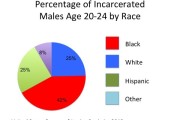The unfortunate fact about the criminal law system is that human errors are oftentimes unavoidable and leave huge flaws within the system. Unclear testimonies, poor eye witness accounts, and a less-than-great attorney are all things that could land an innocent person behind bars. Last week’s story about Dallas local, Michael Phillips, is a great example of these flaws and really shows the importance of criminal defense.
When the front page of the newspaper reads “Man Arrested on Murder Charges”, most people automatically jump to the conclusion that the man was in fact the murderer. As a defense attorney, it is my job and passion to look at it differently. The sensitive and lengthy nature of criminal cases makes it possible for an error to occur at many different points in the trial process. Not only is there a story behind every criminal case but not every suspected criminal Is guilty of the crime.
In order to protect the innocent, Dallas County created the first Conviction Integrity Unit in 2007. Once someone has been convicted of a crime and the punishment is set, law enforcement typically don’t look any further into the case, even if the accused has never admitted guilt. This results in innocent people suffering consequences that in all fairness, ruins their life.
The success of the Dallas unit has paved the way for a multitude of new Conviction Integrity Units across the nation. The goal of these organizations is to investigate cases with untested evidence or claims of wrongful conviction. Working in partnership with the Innocence Project, the Conviction Integrity Unit is the last line of defense for those wrongfully accused.
Since its establishment, the Dallas County Conviction Integrity Unit has helped to exonerate 34 wrongfully accused people, 18 of occurred within the last year. The National Registry of Exonerations reported 87 exonerations nationwide in 2013. 40 of these exonerations were for murder charges with one having wrongfully been sentenced to death. 18 exonerations involved rape or other sexual assault, similar to Michael Phillips case.
Units and organizations such as Conviction Integrity Units and The Innocence Project are the last line of defense for someone who has been convicted of a crime. After they have been convicted and sentenced they are left to accept consequences that range from prison time to the public humiliation of being a registered sex offender, experiences and labels that will stick with them throughout their life. With a record 1,310 exonerations within the last 24 years we can’t ignore the importance of systems such as these.


